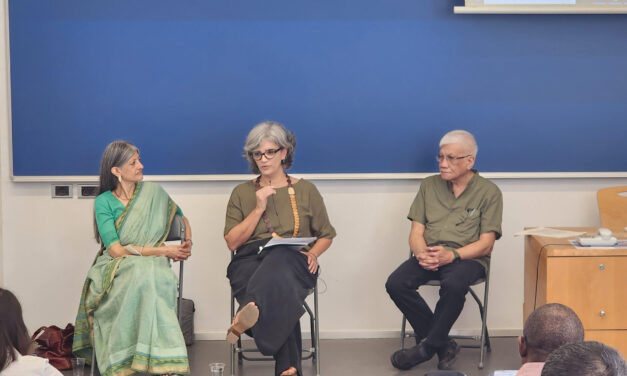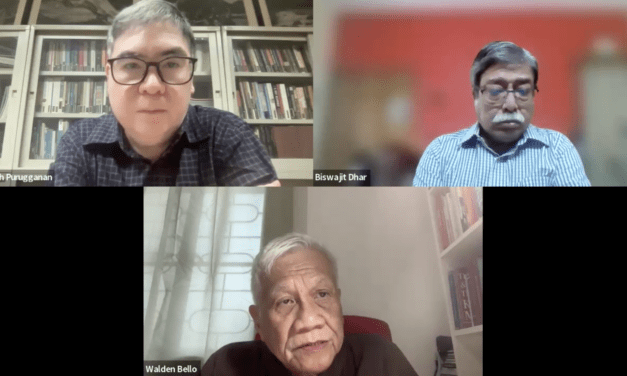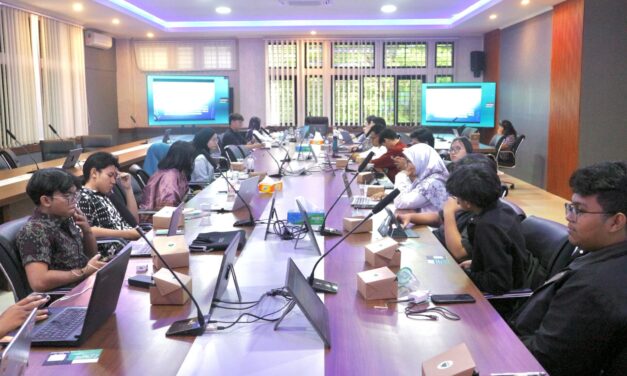Essay on a Dying Multilateralism
By Walden Bello* The recent unilateral strikes by the US on Iran’s nuclear development...

From left to right: Prof. Jayati Ghosh of University of Massachusetts at Amherst, Prof. Simone Deos of the State University of Campinas in Brazil, and Walden Bello at the panel on the crisis of multlateralism.
By Walden Bello* The recent unilateral strikes by the US on Iran’s nuclear development...
by Biplab Ghosh and Angshuman Traditional Ecological Knowledge (TEK) is not merely a body...
In a time of global uncertainty, what could a free trade deal with the EU do for the Philippines?...
by FemSamyan On 19th April 2025 at The Commune Chiang Mai, the event “Peace in a Feminist Way”...
The accumulation of vast amounts of land by a small group of global corporate landowners is...

WEBINAR: The Uncertainties of Free Trade and Protectionism: Opportunities for a Progressive Trade Policy in Asia? - Friday, 9 May 2025.
Good afternoon, and welcome to this webinar on ‘The Uncertainties of Free Trade and Protectionism:...

A discussion on the legacy of Bandung Conference with lecturers and students from the Faculty of Law of Universitas Padjadjaran, Bandung. 2 May 2025. Photo: Bambang Nurjaman.
Good afternoon. My name is Joseph Purugganan, I am a Filipino researcher and activist with Focus...
This article is part of a series marking the 70th anniversary of the 1955 Bandung Conference. A...

by Biplab Ghosh and Angshuman Traditional Ecological Knowledge (TEK) is not merely a body...
by FemSamyan On 19th April 2025 at The Commune Chiang Mai, the event “Peace in a Feminist Way”...
In a time of global uncertainty, what could a free trade deal with the EU do for the Philippines?...
Unpacking the dominant model in order to raise critical understanding among broad constituencies, and to support frontline communities challenging the negative impacts of development
Expanding critical analysis to link economic and development policies with political trends, human rights abuses and violent conflict in order to empower local communities to fight challenges and claim their rights and spaces
Drawing attention to social and political resistance and change to put forth people's own visions and practice for a better world that can form elements of the deglobalisation paradigm